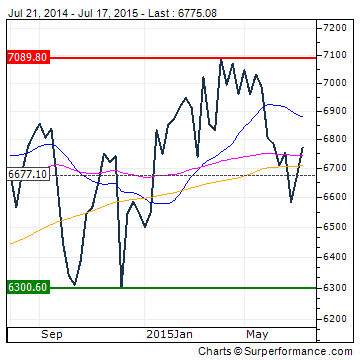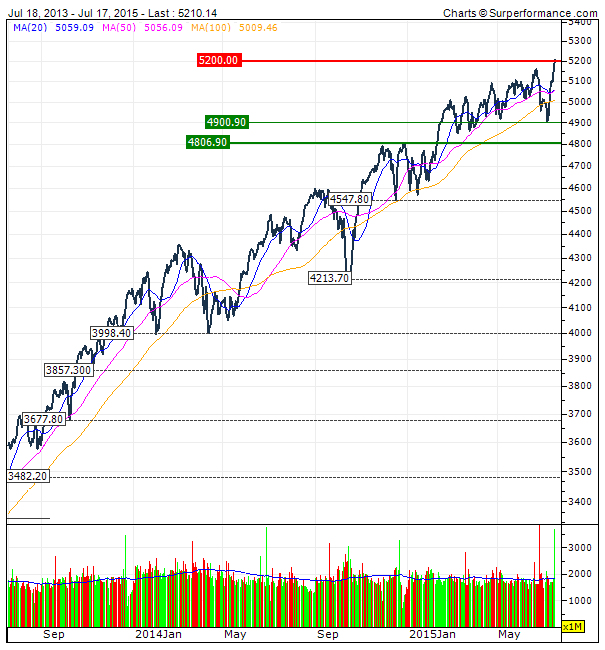Summer in the Markets – Is It Worth It?

As seen in this month’s issue of Master Investor Magazine.
This is the eighth in the series of my educational articles, all of which are focussed on the best habits of winning traders and investors, the most common mistakes traders make and the best ways to avoid them.
Is trading and investing during the summer really worth it? This is a question I hear from investors every single year anytime from May onward. It is also a very popular argument in both investors’ and professional traders’ circles.
I am sure you are all familiar with the old adage “sell in May, and go away”, but for many of you the question still remains: “Should I sell out of my entire portfolio at the beginning of summer, and only look to re-invest come next autumn?”. Let’s look at a bit of history first.
The “Sell in May, and Go Away” saying dates back to the old City of London glory days, when stockbrokers took their summer vacation in May and did not return until September. Their time away was directly linked to the English horse racing season, which begins in early June, with the final horse race of the season taking place on St. Leger’s Day in September. As stockbrokers were absent during this time, the market was illiquid and pretty flat. “Those were the days”, I hear many of you saying upon reading this. I can assure you that there are times when I feel exactly the same, but to be fair, even though trading volumes tend to decrease over the summer, no stockbroker or trader is entitled to such long holidays anymore.
Furthermore, the financial products available to investors have greatly changed since this old City adage was coined, with more flexible products having become freely available to everyone – products providing both institutional and individual investors with opportunities to profit from both rising and falling markets in every major asset class. This means that even in the years when the stock markets do move lower between May and September, you can still make money by being short an index CFD or future.
This year is a good example of this. I have included here a chart of the FTSE 100 Index, where you can see that had you taken a short position using a FTSE CFD or Futures Contract at the 7,000 level last May, you would be “up” by 550 points when the index hit 6,450 recently. In monetary terms, assuming that you had used a CFD to take a £100 per point short position at 7,000, you would have a £5,500 gross profit when the index reached 6,450. So this year, the “Sell in May” theory worked on an overall market level. In fact, according to research, it has worked in most years since 1950 both for the FTSE 100 and for the US Indices.

There is however a catch: the theory does not always work. The stock markets do not always go down in the summer, and therefore simply selling in May is not a full-proof strategy. To show this, I have included here a chart of the Nasdaq Index, where you can see that going short, or alternatively selling out of all of your Nasdaq stocks in May 2014, would have been the wrong thing to do. As seen on the chart, if you had shorted the Nasdaq at 3,550 that May, you would have been “down” by 450 points when it hit 4,000 in September 2014. Hopefully, if you were indeed short, you would have exited at a loss before then. Alternatively, if you had sold all of your Nasdaq stocks that May, you would probably be pretty angry with yourself come September.

Having looked at all this, let us now focus on you. What should YOU do in the summer? Well for starters, you neither have to exit all of your stock positions in May, nor do you necessarily have to go short. As is always the case with the markets, you should base all of your investing and trading decisions on facts, reason, and your assessment of the current market and greater economic environment. You should do this regardless of the season, not only in the summertime. If you do this right, you will know that there are Mays when you will be best off selling, and Mays when you will not, and then you will just have to act accordingly.
Since we are talking about you though, let’s stay on this topic, and discuss when you should stay away from the market in summer regardless of the market’s direction. Let’s start with the basics. I hope you agree that you should only make investment decisions when you can think clearly. This is most unlikely to happen after you have had your third vodka cocktail under the sun on a Mediterranean or Caribbean beach. Just because trading technology and wireless internet provision have improved enough to allow you to trade from “anywhere, anytime”, it does not mean that you should do it. If there is a place and a time for everything in this life, the beach and your holidays in general are not the time and place for trading. So how about you do yourself a favour, and forget about the markets whilst you are away?
“But what about my existing open positions?” I hear some of you ask. Well, it is simpler than you think. In fact, I can summarise it in the following two rules:
- Close your highly leveraged (CFD) positions before you go on holiday.
- Ensure that all of your remaining open positions have protective stops in place. Use trailing stops if you wish to progressively “lock in” profits.
That IS the long and short of it ladies and gentlemen. It is not rocket science; it is just you applying the same exact principles that you should be applying all year round.
‘’Yes, but what if a major disaster strikes?” I now hear the unconvinced among you ask. “A new 9-11, a huge nuclear explosion, a new world war, the end of the world?” Well, believe it or not, if a major disaster were to happen, assuming that the markets do still exist and are open, and you have followed rules 1 and 2 above, you may hit your stops, you may have these filled at worse prices than you would otherwise, but you will not lose all of your money. It will NOT be the end of your trading/investing.
Now of course, if Armageddon were to kick off, may I suggest that you cut the holiday short, go home, sell your stocks at any price, and only look for ways to protect yourself and your family? In fact, in such a scenario, may I suggest that you stop caring about the markets altogether, and just enjoy your last moments? I know I would.
On a more positive note, I hope I have succeeded in showing you a way to enjoy a more relaxed and profitable summer this year.
Until next month,
Happy trading and happy holidays everyone!
Comments (0)